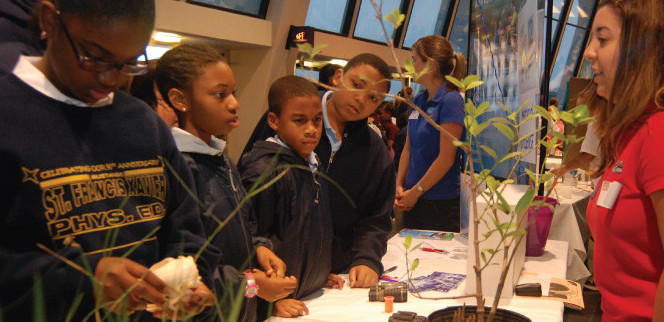Sign Up. Stay Informed.
Educational Resources

With Louisiana’s newly passed 2017 science standards comes a new opportunity to educate the next generation of students about the significance of our coast. Please be encouraged to access these Educational Resources which provide Louisiana coastal subject matter for grades K-12.
Connect with Watch the Delta Grow to access a lesson plan, data, and activities, aligned with the new state middle school science standards; extensions included for high school level environmental science. Other resources listed will require modification to meet DCI components of Louisiana’s new science standards.
Join the wave of next generation educators, to help build awareness of Louisiana’s coast and all the issues that require its protection and restoration.
The LSU | Center for River Studies is a collaborative research and education facility that will be operated in partnership with Louisiana State University. The Center features the Lower Mississippi River Physical Model, a 90 ft. x 120 ft. movable-bed physical model, which will be used in conjunction with other types of computer models to help researchers and engineers better understand sediment transport in the lower Mississippi River. This state-of-the-art model is based on exact parameters of the river’s physical and kinetic properties, producing a degree of accuracy never before achieved in lower-river physical modeling. The Center also houses a 10,000 sq. ft. exhibit area that includes seven distinct coastal-related educational themes, which creates a powerful learning experience for middle and high school students. For more information about School Group Tours, visit this page.
Coastal 101: This is the story of Louisiana’s Vanishing Coast. It is a story centered around sediment and river water – and how they built the land we live on.
Louisiana Marine Education Resources: A variety of formal and informal education materials about marine and aquatic ecosystems, as well as other topics, to help stimulate awareness of our close relationship to the environment. (Funded by Louisiana Sea Grant)
CWPPRA Curriculum: The CWPPRA (Coastal Wetlands Planning, Protection and Restoration Act) Curriculum includes various educational materials focused on coastal restoration in Louisiana.
Watch the Delta Grow: Access a lesson plan, data, and activities, aligned with the new state middle school science standards; extensions included for high school level environmental science. (Funded by Louisiana Sea Grant)
America’s Wetland: The America’s WETLAND education page offers a variety of educational materials about the wetlands created by our education partners, play games, color wetland scenes, and much more.
The 4-H Youth Wetlands Education and Outreach Program (4-H YWP): The 4-H YWP is a statewide LSU AgCenter program sponsored by CPRA, is designed to heighten students’ awareness of Louisiana’s wetland loss through an organized educational program of outreach, empowerment, and advocacy. The program offers free K-12 lesson plans geared towards improving understanding of wetlands and the coastal land loss crisis in Louisiana. Teacher trainings and wetland service projects are available upon request. During the summer, three experiential learning summer camps are offered: 4-H Camp Grant Walker, Louisiana Outdoor Science and Technology (LOST) Camp, and Marsh Maneuvers, all of which utilize 4-H YWP lesson plans.
National Geographic: The National Geographic Society is home to rich and diverse resources that have enormous potential to support learning. As the educational outreach arm of National Geographic, National Geographic Education is committed to maximizing the impact of the Society’s rich media, scientific, and exploration programs on the education audience.
NOAA Ocean Service Education: NOAA’s education webpage offers a variety of resources and education materials, games, lesson plans, and teacher training tools geared towards both students and teachers to improve ocean and climate literacy.
Wetshop is a weeklong teacher training conducted in the field, onsite at the LDWF Marine Research Lab in Grand Isle. Teachers will receive 55 professional contact hours. Stipends are available for the workshop, and teachers are encouraged to return to their home parishes to implement a wetlands stewardship project with their students in the community. Stipends are also available for this project.
The Mighty Mississippi Electronic Field Trip: WYES-TV, the New Orleans PBS member station, and the Center for Global Environmental Education at Hamline University in St. Paul, MN, take your students from the headwaters of the Mississippi River down to its mouth at Louisiana’s coast.
